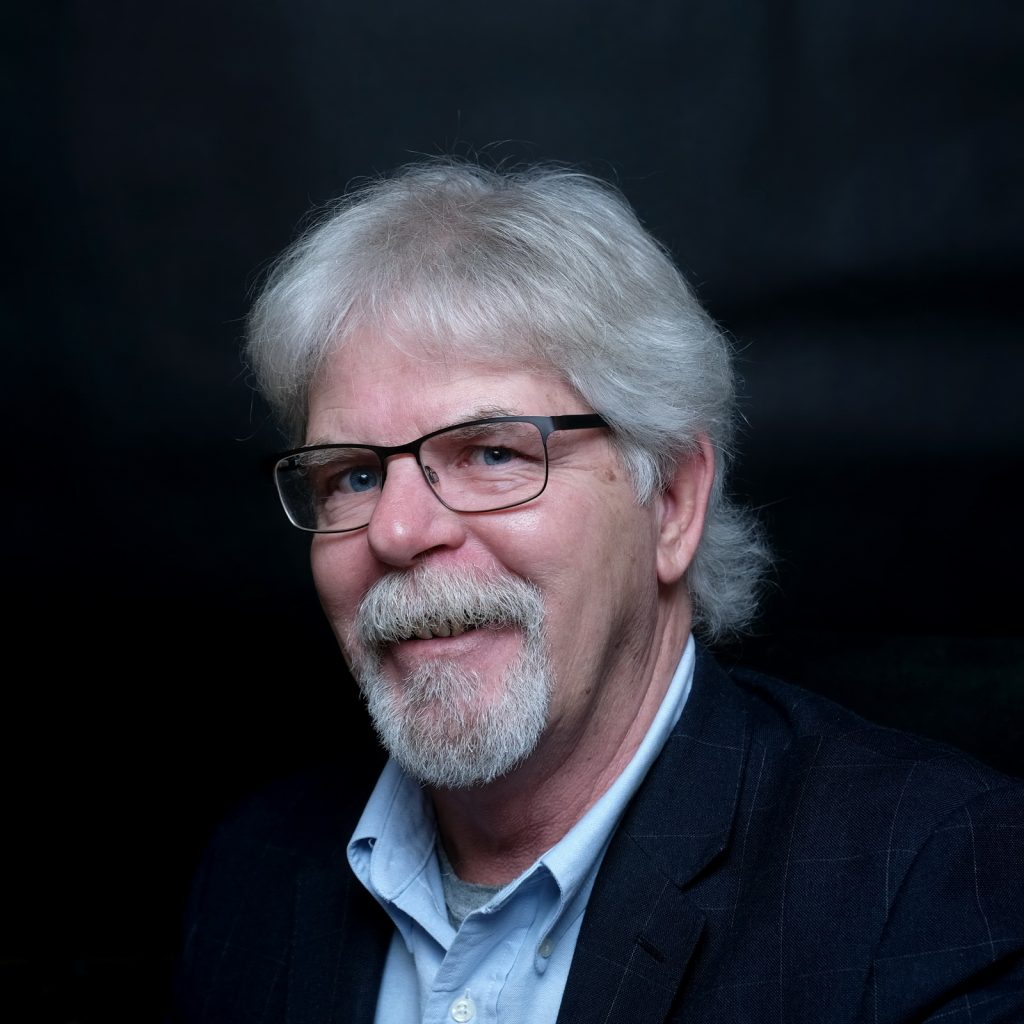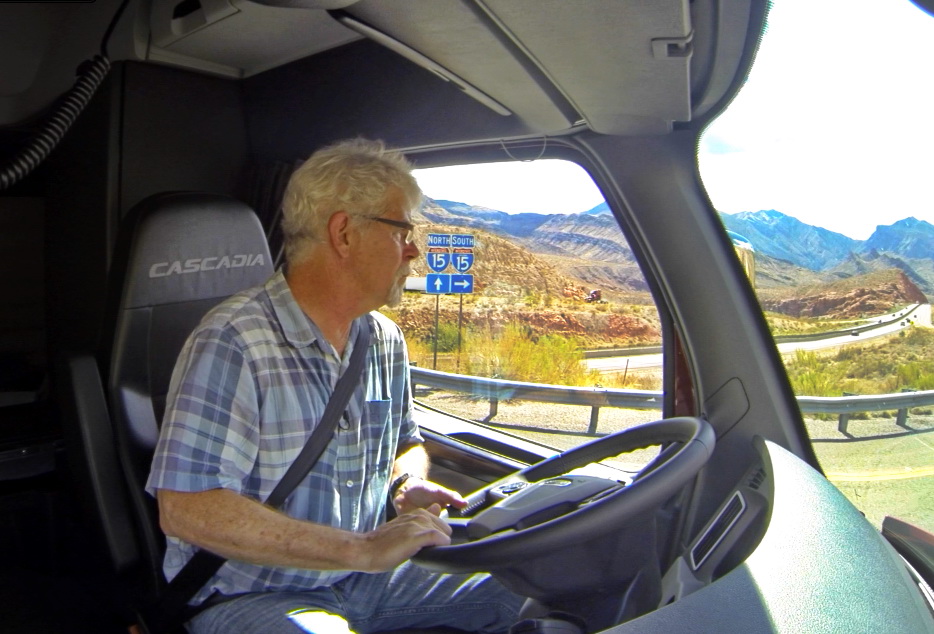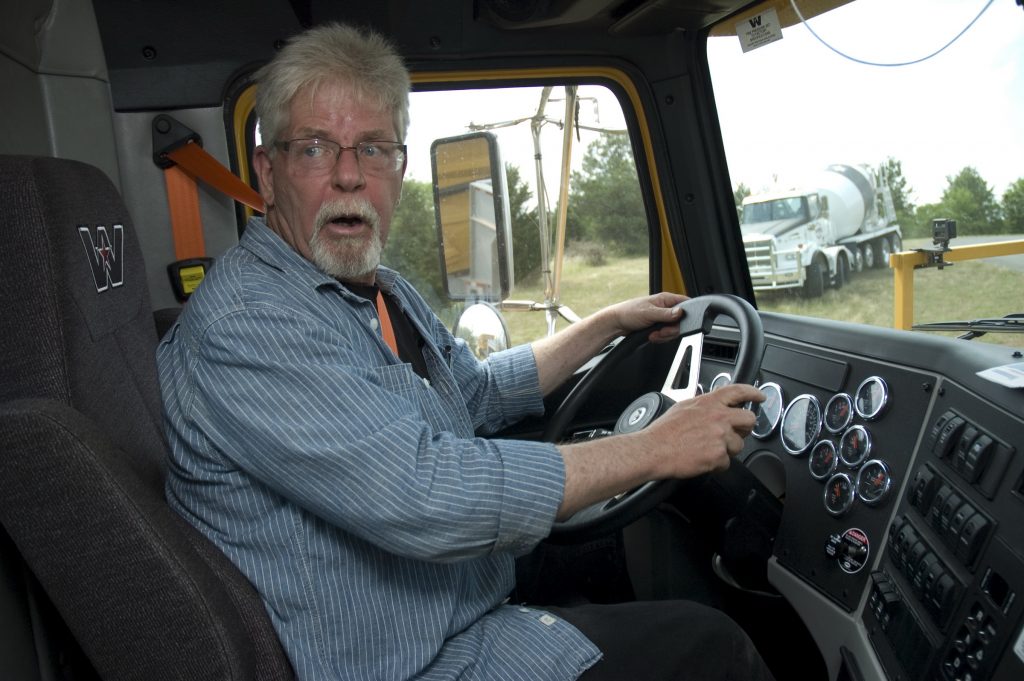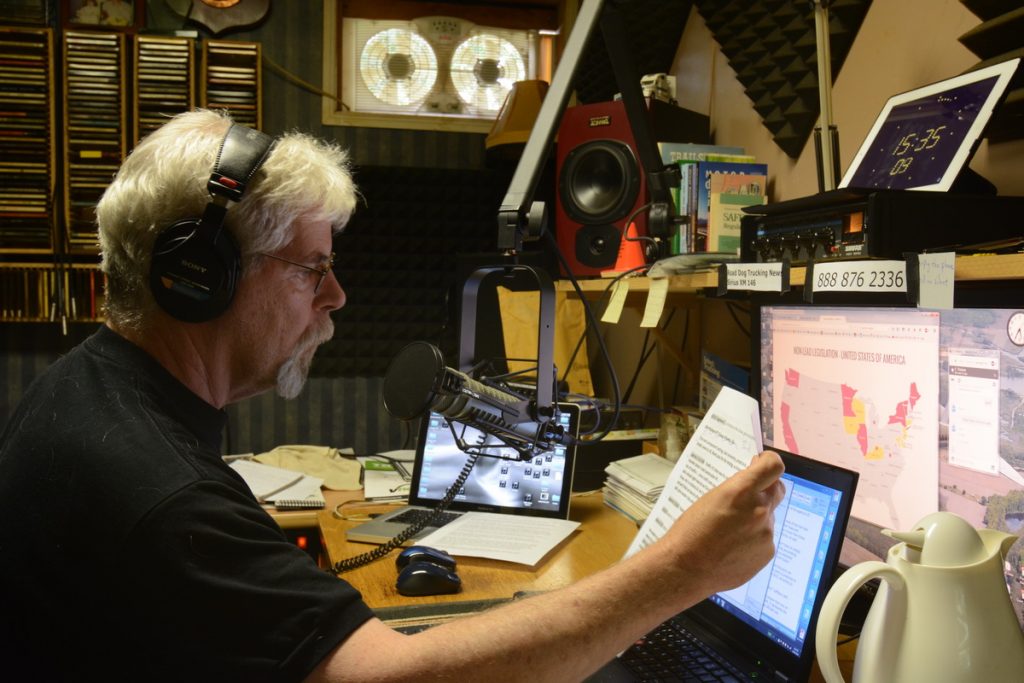880 W. Long Lake Road • Suite 225 •
Troy, Michigan 48098
• P: 248.269.1122 •
E: bianchipr@bianchipr.com
880 W. Long Lake Road • Suite 225 •
Troy, Michigan 48098
• P: 248.269.1122 •
E: bianchipr@bianchipr.com

I am a freelance editor representing Heavy Duty Trucking and TruckNews. My specialty is coverage of equipment issues, from engines to brakes and everything in between. I test drive new equipment offerings in print and video formats. I also host HDT’s audio and video podcast, HDT Talks Trucking.
Can you tell us what types of stories, trends or issues are on your radar now?
The big news in trucking today is the transition away from fossil fuels to other forms of motive power. There’s no shortage of material to cover here, but I try to maintain coverage of the fundamentals: the how-to stories, coverage of regulatory issues, and coverage of successful people and companies in this space.
Describe the craziest or most fun story you have written.
Back in the highwaySTAR days, I learned I had a significant number of readers from Canada’s armed forces. They operate trucks too, and many of soldiers also held part-time driving positions with freight carriers. Aware that I wrote test drive stories and now highway trucks, I was asked to do a test drive story on military truck Canada was using at the time called a Steyr 1491, 6×6.
I was invited to the training and proving grounds at Canadian Forces Base Borden to put the truck through its paces. I drove it through forests, swamps, sand dunes, mountains and just about any type of terrain you can imagine. I was challenged with trying to get the thing stuck somewhere. I succeeded, but it took some effort. We camped out for two days, ate military rations, fired the guns and even drove a tank. In fact, they had to use the tank to get the Steyr unstuck.
What story or stories are you most proud of?
Two stories come to mind for quite different reasons. The first was a story called Driving for Dollars, which was a how-to story written for single truck owner-operators that broke down the cost of running a small truck, with a focus on fuel economy. For that effort, I earned my first Gold Kenneth R. Wilson award for business journalism. I’m not boasting here, but nobody was more surprised than me to win that award, as I had not formal training in writing. I wrote the story based on my own experience, and it obviously resonated with the readers and the judges. I was pretty proud of that accomplishment.

My other proud moment was a commentary I wrote about a driver who was involved in a very serious crash. The story was more sympathetic to the driver than most of the other coverage that arose from that event, again, because as former “rookie” driver myself, I had a sense of what he was up against in trying to learn how to be a driver in an industry that offers insufficient support to trainees. Judging by the comments that followed that story, I know I had provided readers with a new perspective and challenged some of their preconceived notions. I considered that an achievement.
What elements or characteristics do you look for in a story?
I like stories that provides the reader with a learning experience. Whether it’s writing about establishing a tire maintenance program or explaining how hydrogen fuel cells work, I get great satisfaction from hearing a reader say, ‘thanks, I learned something from that story.’
How long have you been in journalism and how did you get started?
I have been working in the trucking industry since 1978, when I started as a driver. I worked mostly liquid chemical tankers, but I ran a small company of my own for three years specializing in touring theatrical productions. After 18 years at the wheel, I was interested in a career change.

My foray into journalism began by writing “letters to the editor” to several trucking trade pubs. A couple of the editors noticed that I had a knack for writing and that I seemed well versed in the subject matter. They asked if I’d consider writing something for publication. I penned a few stories, they were published, I was asked for a few more. Eventually they offered to pay for my contributions.
While getting paid to write was great, the revenue was insufficient to give up driving entirely. During the two years it took to transition from driving to writing, I scaled back the driving, did a two-year stint hosting an all-night radio show targeted to truck drivers at CHAM radio in Hamilton, Ontario, and contributed as many stories as I could to various magazines.
After about a year of part-time writing, I was offered a full-time position with RPM Canada. About a year later, in June 1999, I was offered and accepted a position with a startup title targeting drivers and owner-called highwaySTAR, published by Newcom Media in Canada. With that move, I hung up the cowboy boots, bid my listeners adieu and dug into a new and exciting way to make a living.
Finish this sentence: If I am not reporting, I am … probably out on a golf course or touring around the countryside on my motorcycle. I occasionally get drafted to mow the lawn and do a little yard work.
What advice do you have for PR people that want to pitch you?
Understand the market I write for. I cover the heavy-duty trucking industry. I get lots of pitches for stories on the automotive industry, which occasionally cross over, but it’s rare. Sometimes it’s healthcare or municipal politics … I honestly don’t know how I manage to get on some email distribution lists. There’s plenty of relevant material vying for my attention, so I’m likely not to respond to pitches that are not related to the industry I cover.
Any pet peeves with PR people?
Jargon, jargon, jargon. Please keep the pitches understandable to the untrained eye. I am not an expert. If I have to contact you to ask what X is, you haven’t done your job. If I don’t understand it, I’ll never be able to explain it to my readers. Please use plain English in your press releases and leave the jargon for industry insiders.
Tell us a little about yourself (family, interests, hobbies, background, some fact about you that few people know, etc.)

My university major was technical theater production (lighting, sound, stagecraft, etc.) but I never pursued that professionally. That back did lead to my gig hauling touring theater productions and I often work those shows as a follow-spot operator. I’m still actively involved in community theater as a sound engineer and have about a dozen musical productions to my credit. I have a small recording studio at home where I like to work with local musicians. I help them produce demo recordings to advance their careers.
You might also be interested in:
One Comment
Great profile, Jim. A guy who writes only what he really knows about. Keep up the great work!